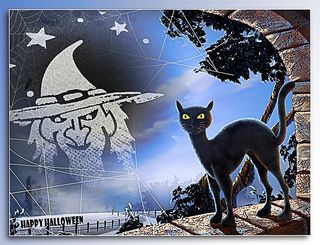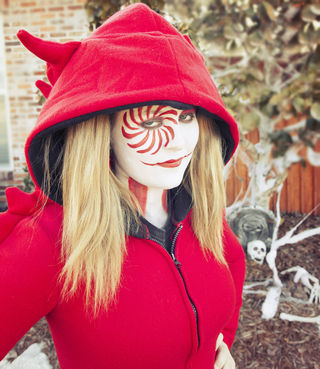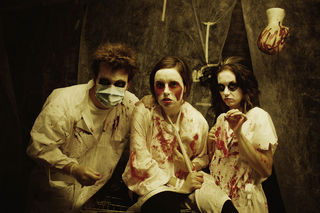Identity
Should You Wear a Costume for Halloween?
The pros and cons of dressing up for undecided readers.
Posted October 25, 2015 Reviewed by Ekua Hagan
Of all the holidays we celebrate, none has become more commercialized or shifted in character faster and to a greater degree than Halloween.
Twenty-five years ago, consumer researcher Russell Belk described Halloween this way: “Children wear costumes … and extort treats from adults with threats of property destruction … [They] leave home and family to join other children for an evening of pranks in order to obtain unwholesome sweets in a decidedly nonreligious atmosphere.”
How times have changed!

What used to be a one-evening holiday for children to enjoy in their own neighborhoods has been transformed into a multi-day festival that is now celebrated by 64 percent of adults. Americans will spend close to $7 billion on Halloween this year, many on elaborate costumes, themed parties, and costly commercially produced experiences such as haunted houses and limousine tours. Ironically, adults now spend more money on their costumes than children, by a wide margin ($1.2 billion versus $950 million).
When the media considers the topic of adult Halloween costumes, their questions are about choices, such as “What costume should you wear this Halloween?” and “What are the most popular costumes this year?”
Many of these discussions are orchestrated by marketers whose best interests lie in getting as many adults to wear costumes as possible. So it is not surprising that their questions are framed by assuming that every adult has to and will wear a costume on Halloween.
But are these assumptions really true?
I don’t mean to be a killjoy but there are probably just as many good reasons not to wear a Halloween costume as there are to wear one.
Here, I want to explore some pros and cons of the decision to wear a costume on Halloween, with a goal of swaying those on the fence one way or the other.
Reasons why you should consider wearing a costume on Halloween
We’ll look at the pros of Halloween costuming for undecided adults first. In my book, they all boil down to questions about enjoyment and intrinsic motivations.
- For sheer enjoyment of the experience. Consumer researchers have argued that rather than providing utilitarian benefits, the value of many consumption experiences lies in the “fantasies, feelings, and fun” they provide. To many people, Halloween costumes provide all three of these things in good measure.
So the first and foremost reason for wearing a costume is the simplest yet most powerful one: enjoyment of the experience. Simply put, when you think of your past Halloween experiences, if what comes to your mind are fond memories of costumed revelry, you should stop reading right here. Any ethical marketer would say that in the end, the customer’s happiness is what matters. If consumers enjoy the experience (and are not hurting themselves or others), they should just do it.
But chances are that if you are undecided about whether to wear a costume on Halloween, your decision calculus is a bit more complicated. Why else might you want to wear a costume?

- To show off your creativity. For many people, most of the fun lies in visualizing and then putting together a creative costume.
So even if you find the actual experience of being in costume to be rather uncomfortable (physically or psychologically), one upside of costuming is that it’s a great way to flex your creative muscles.
Every year, some of the most popular and talked about costumes tend to be the most creative ones. Another benefit of creative costume design is it helps us learn about ourselves. As European social scientists Janine Fron and her colleagues point out, “Dress-up provides the opportunity for transformative play, for in dressing up and taking on new roles, we learn more about ourselves.”
- To try out a new identity. Today, virtually all opportunities to disguise ourselves and try on a new identity are limited to the online domain. In a virtual game, for example, you can explore what it means to be of a different age, race, or gender, or even a different species altogether. Even on social media, you can carefully curate your posts to produce and communicate a desirable image of yourself. It is relatively easy to shrug off your core self-identities and try on new, exciting, and starkly different identities online.
But such a thing is very difficult to pull off in real life. In fact, Halloween offers one of the few sanctioned and widely available opportunities to try out a new identity for a short while and see how it feels. Many of us want to experience what it feels like to be powerful and special. So it is not surprising that superhero costumes are perennially popular choices.
- To fit in with your circle of friends. In the event that none of the reasons so far interest you, there is one more important reason for wearing a Halloween costume: just because everyone in your circle of friends wears one and celebrates together.
At first, succumbing to peer pressure might sound like a bad reason. But the truth is that in this case, peer pressure has serious social benefits. So go ahead, if all your friends are going to costume up, consider doing so yourself.
Reasons why you shouldn’t wear a Halloween costume
Although I have presented some rather strong arguments for dressing up for Halloween, in the interest of full disclosure, I must admit I have worn a Halloween costume only once in my adult life. Plus I have no intention of ever wearing one again. Why?
- You simply don’t enjoy it. For many people (including me), the downside of Halloween costumes is just too high. Dressing up does not seem necessary for any of my real or desired identities. I have other ways of being creative, and the thought of wearing a costume just feels unpleasant.
One reason is that Halloween, and dressing in costumes, is something that extroverts enjoy. As psychologist Sophia Dembling has insightfully pointed out, “Costume parties are just one big audience participation event, and audience participation is an introvert’s nightmare.” Plus beyond serving as a momentary ice-breaker or causing people to look and guess what the costume is, people adapt quickly to the costume’s novelty in any group setting.
So whether you are an introvert and don’t fancy the type of social interaction that goes with dressing up, or whether the thought of wearing a costume makes you anxious for some other reason, the knowledge that you will not enjoy the experience is sufficient enough to say no. Over the years, I have attended Halloween parties where I was among a few people not wearing costumes. And that’s ok; everyone still had a great time.
- You want to rebel against the crass commercialization of yet another “marketer-controlled” holiday. Like other holidays with roots in religious celebrations (i.e. Christmas), Halloween has been taken over by marketers. I mentioned one kind of peer pressure before, that from close friends. But another, more insidious sort of peer pressure is the one that is exerted by marketers. More often than not, their message is that if you don’t spend an exorbitant amount of money to buy an elaborate costume, or buy pricey tickets for an enacted experience, there is something wrong with you. It makes a lot of sense to rebel against such fake pressure by not buying mass-produced, highly marked-up costumes.

- You think it’s wasteful (financially and materially) to buy and wear costumes just once. Related to the commercialization of this celebration is the fact that Halloween costumes hold value for a limited amount of time. They are only good for a few hours or days at most. For most people, the first wearing of the costume has the most utility; it’s not much fun to wear the same costume the second or the third time around. Plus repetition defeats the purposes of being creative, temporarily trying a new identity, etc. and the costume will turn into a uniform instead. Without a creative “exit strategy” about what to do with your costume afterward, your closet might start to get jammed with once-worn Halloween costumes.
I will conclude by saying one more thing about Halloween costumes. As in the case of Christmas gifts where price often does not correlate with the gift giver’s love for the recipient, the creativity of a Halloween costume and the status it affords the wearer does not necessarily correlate with the money that is spent on it.
The most creative Halloween costumes, the ones that receive the attention of everyone and which garner the most social media exposure, are often created with very little money but with a lot of imagination. And most importantly, these costumes are the most fun to come up with and put together.
So what does the question of whether to wear a costume for Halloween come down to? It's a very personal decision. The amount of enjoyment you will experience must be traded against your possible anxiety from having to participate in group activities. The chance to explore a new identity or show off your creativity needs to be balanced against your distaste in supporting crass commercialization or adding one more never-to-be-worn-again outfit into your over-stuffed closet.
If you are still sitting on the fence, take a few minutes to weigh these pros and cons. And regardless of what you decide, Happy Halloween!
I teach core marketing and pricing to MBA students at Rice University.




